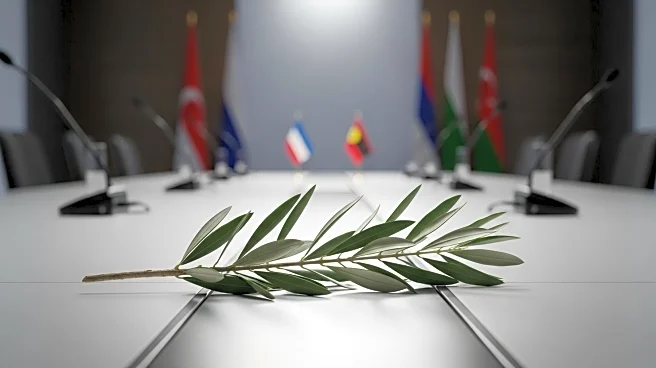What's Happening?
Israeli Prime Minister Benjamin Netanyahu has denied reports that the White House was involved in drafting an apology to Qatar following an Israeli strike on Doha. The Prime Minister's Office (PMO) labeled the claims as 'fake news,' asserting that the apology was crafted solely by Netanyahu and his professional team. This statement comes in response to a Politico report suggesting that the apology was written with input from the White House and Qatari officials. The PMO clarified that Netanyahu's words were chosen independently, although he was present during a conversation with Qatar's prime minister at the invitation of the U.S. team.
Why It's Important?
The denial from Netanyahu's office highlights the sensitive nature of international diplomatic communications, especially involving key allies like the United States and strategic partners in the Middle East. The assertion of independence in crafting the apology may be aimed at maintaining Israel's diplomatic autonomy and managing its international image. This incident also underscores the complexities of Middle Eastern geopolitics, where alliances and communications are often scrutinized. The situation could impact Israel's relations with both Qatar and the United States, depending on how the narrative is perceived by the international community.
What's Next?
The ongoing diplomatic discourse may lead to further clarifications or statements from involved parties, including the White House and Qatari officials. Observers will be watching for any shifts in diplomatic relations or policy adjustments that might arise from this incident. Additionally, the response from European countries, which have shown varying degrees of hostility towards Israel, could influence future diplomatic strategies.
Beyond the Headlines
This development may also reflect broader issues of media influence and the spread of misinformation in international relations. The PMO's strong denial of the report as 'fake news' suggests a concern over the potential impact of media narratives on diplomatic relations. This incident could prompt discussions on the role of media in shaping public perception and policy decisions in international affairs.









